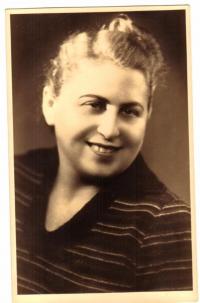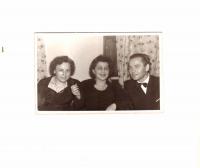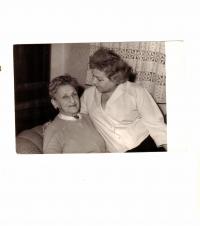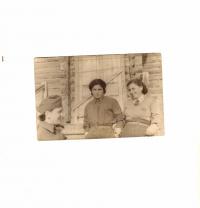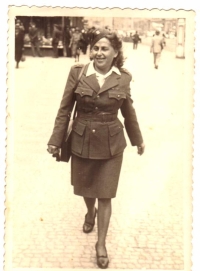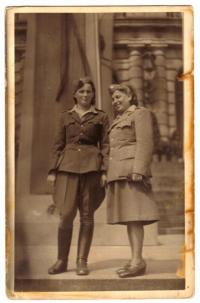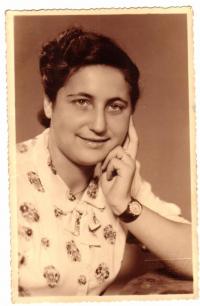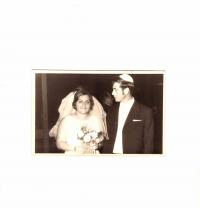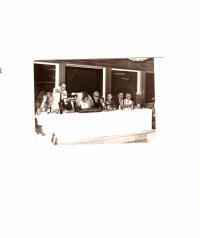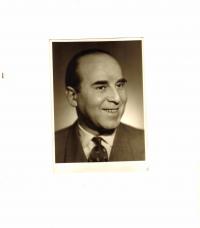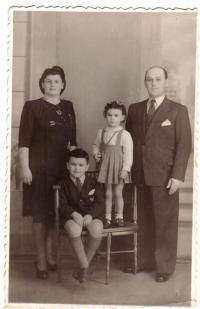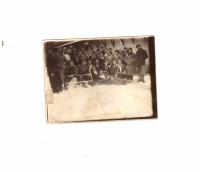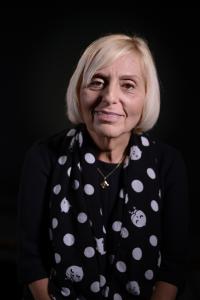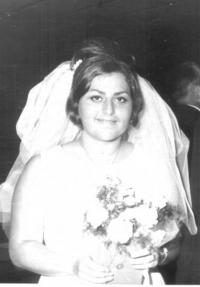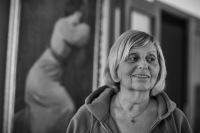“And then the Six-Day War came, which was the first war in my life. An unbelievably traumatic experience. The first day - that first day was horrible, the siren screaming at five in the morning. I remember I was shaking all over, and I started to solve crosswords. That was my way of dealing with it. Because for us, for you, for me, war meant World War II - with all the hardships that came with it. And I was terrified of wars. And suddenly the war was over in six days. I hadn’t been so involved yet at the time. Even though my cousin’s husband, that is the daughter of my father’s cousin lost her husband. I didn’t see things then as I do now. Simply said, I’d be happier if there were no more wars anywhere and no more men dying, no people dying full stop. The Six-Day War, that wasn’t a war at all, that was a one big wave of euphoria. It ended quite suddenly after six days. My mum was the best. We were supposed to move from our first flat to some other place in Haifa, because it was too high up for my dad, me couldn’t do the four flights of steps. So they managed to swap it for a different one, and (Mum) was sitting and packing her things - she loved crystal glassware, those are all hers, the red one here, and the pictures, those are all hers originally. And she was packing and a lady came up and said: ‘ Mrs Nagel, what are you doing, can’t you hear the siren? We have to get into the shelter.’ The shelter there, that was a joke, it was one house which stood as if on some kind of legs, and it had one room under the legs - well that would all collapse of course, it was ridiculous. And my mum said: ‘Don’t be crazy, madam, I’m not going anywhere.’ Those were Jews from České Budějovice, I’m still in touch with that person. ‘I’m not going anywhere, we’re supposed to swap flats, and if (a bomb)’s going to drop here, let it. I’m not going anywhere. I was at Dukla, and when we marched through the mountain pass, there were shells falling to the left of us, to the right of us, mines exploding, and I survived. I’m a fatalist: it drops - it drops; it doesn’t - it doesn’t. We’re supposed to be moving, I have to pack myself and that’s it.’ And after the Six-Day War, we were full of such euphoria. Jerusalem - those were things that hadn’t meant much to me before, and do not mean much to me now. But back then, it was such a heroic feeling... I don’t know how to say it: to defeat so many countries, so many armies in six days. They were routed barefoot they were, the Egyptians.”

